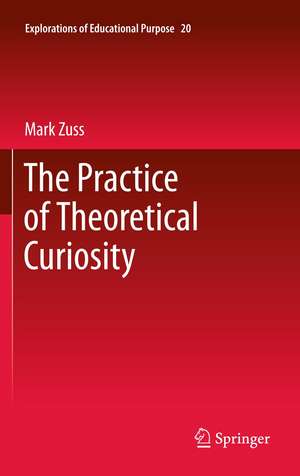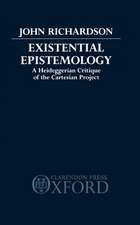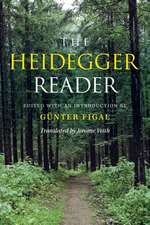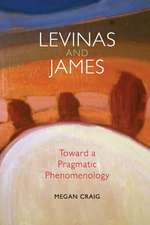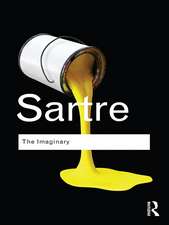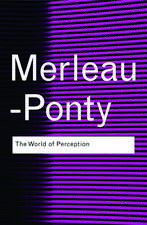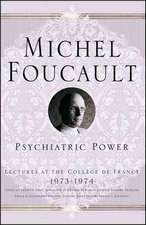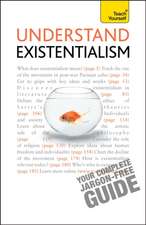The Practice of Theoretical Curiosity: Explorations of Educational Purpose, cartea 20
Autor Mark Zussen Limba Engleză Paperback – 27 noi 2013
| Toate formatele și edițiile | Preț | Express |
|---|---|---|
| Paperback (1) | 636.94 lei 43-57 zile | |
| SPRINGER NETHERLANDS – 27 noi 2013 | 636.94 lei 43-57 zile | |
| Hardback (1) | 643.16 lei 43-57 zile | |
| SPRINGER NETHERLANDS – 10 sep 2011 | 643.16 lei 43-57 zile |
Din seria Explorations of Educational Purpose
- 15%
 Preț: 639.25 lei
Preț: 639.25 lei - 15%
 Preț: 640.37 lei
Preț: 640.37 lei - 15%
 Preț: 634.18 lei
Preț: 634.18 lei - 15%
 Preț: 641.71 lei
Preț: 641.71 lei - 15%
 Preț: 635.31 lei
Preț: 635.31 lei - 15%
 Preț: 639.41 lei
Preț: 639.41 lei - 15%
 Preț: 632.22 lei
Preț: 632.22 lei - 15%
 Preț: 636.12 lei
Preț: 636.12 lei - 15%
 Preț: 642.36 lei
Preț: 642.36 lei - 15%
 Preț: 637.28 lei
Preț: 637.28 lei - 15%
 Preț: 637.78 lei
Preț: 637.78 lei - 15%
 Preț: 646.62 lei
Preț: 646.62 lei - 15%
 Preț: 642.36 lei
Preț: 642.36 lei - 15%
 Preț: 641.53 lei
Preț: 641.53 lei - 20%
 Preț: 561.98 lei
Preț: 561.98 lei - 15%
 Preț: 636.80 lei
Preț: 636.80 lei - 15%
 Preț: 637.93 lei
Preț: 637.93 lei - 15%
 Preț: 638.76 lei
Preț: 638.76 lei - 15%
 Preț: 644.30 lei
Preț: 644.30 lei - 15%
 Preț: 649.06 lei
Preț: 649.06 lei -
 Preț: 390.25 lei
Preț: 390.25 lei - 15%
 Preț: 644.30 lei
Preț: 644.30 lei - 15%
 Preț: 645.47 lei
Preț: 645.47 lei - 15%
 Preț: 644.63 lei
Preț: 644.63 lei - 15%
 Preț: 639.25 lei
Preț: 639.25 lei
Preț: 636.94 lei
Preț vechi: 749.34 lei
-15% Nou
Puncte Express: 955
Preț estimativ în valută:
121.88€ • 127.57$ • 101.44£
121.88€ • 127.57$ • 101.44£
Carte tipărită la comandă
Livrare economică 31 martie-14 aprilie
Preluare comenzi: 021 569.72.76
Specificații
ISBN-13: 9789400737600
ISBN-10: 9400737602
Pagini: 224
Ilustrații: XVIII, 206 p.
Dimensiuni: 155 x 235 x 12 mm
Greutate: 0.32 kg
Ediția:2012
Editura: SPRINGER NETHERLANDS
Colecția Springer
Seria Explorations of Educational Purpose
Locul publicării:Dordrecht, Netherlands
ISBN-10: 9400737602
Pagini: 224
Ilustrații: XVIII, 206 p.
Dimensiuni: 155 x 235 x 12 mm
Greutate: 0.32 kg
Ediția:2012
Editura: SPRINGER NETHERLANDS
Colecția Springer
Seria Explorations of Educational Purpose
Locul publicării:Dordrecht, Netherlands
Public țintă
ResearchCuprins
Preface: Thinking Curiously.- Chapter One: First Questions.- Chapter Two: A Taming of the Passions.-Chapter Three: Pedagogies of Curiosity.- Chapter Four: The Sphinx.- Chapter Five: Curiosity and the Question.- Chapter Six: Technics: Thinking Life.- Chapter Seven: Minds, Limits, Spaces.
Textul de pe ultima copertă
The desire for knowledge is an abiding facet of human experience and cultural development. This work documents curiosity as a sociohistorical force initiating research across the disciplines. Projects generated by theoretical curiosity are presented as historical and material practices emerging as expressions of embodied knowledge and experience. The shifting cultural, philosophical and practical relations between theory and curiosity are situated within classical, medieval, early modern and contemporary communities of practice. The Practice of Theoretical Curiosity advocates for a critical, aesthetic engagement in everyday life. Its purpose is to examine the pedagogical grounds and questions that motivate research programs in the sciences, education, technoculture and post-war social movements. Theoretical curiosity continually resists disciplinary limits. It is a core, embodied process uniting human pursuits of knowledge and power. This inquiry into inquiry itself offers an appreciation of the vital continuity between the senses, perception, and affect and concept development. It is informed by a critical reading of phenomenology as the embodied practice of researchers. This study sponsors a deepening of theory in practice and the practice of theoretical exploration. As a contribution to pedagogical practice, it offers a historical critique of the usually unquestioned philosophical, political and ethical grounds for educational, scientific and social research. The Practice of Theoretical Curiosity profiles significant alliances and persona as agents for the pursuit of novel and often controversial research, adventures and discovery. It claims that the place of technology and the technical is the primary channel for contemporary inquiry. The technosciences of genomics, artificial life and astrobiology are considered as contemporary extensions of a perennial desire to pursue and resist the limits of existing knowledge and representation.
Caracteristici
Historicizes curiosity as a social and material practice A phenomenological appreciation of curiosity as an expression of situated knowledge and experience Documents the motivating influences for research in genomics, pedagogy, artificial life, social movement theory Accents the primary place of technics and technology for thought and research.
